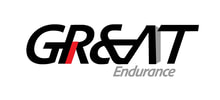|
The Power of Protein: Essential Nutrition for Endurance Athletes and Executives In endurance sports, especially triathlon, nutrition is key to optimizing performance, recovery, and overall health. As an executive you can apply those sports nutrition lessons to enhance your professional life and well-being. Here’s an in-depth look at how protein plays a crucial role in general health, including muscle growth, repair, recovery. We discuss what proteins are, the why, what, how and when proteins are needed. 1. Why Eat Protein?
Protein is the building block of life. It plays a critical role in repairing and building muscles, producing enzymes and hormones, and supporting immune function. They represent 20% of your body weight and are not only essential for muscles, but also for the structure of tissue like tendons, skin, hair and nails. They also are necessary to create thousands of different enzymes, as well as hormones like insulin and adrenaline. Proteins consist of 20 types of amino acids, which combine to form hundreds of different proteins essential for bodily functions. There are twelve non-essential amino acids that your body can synthesize, and eight essential ones that can only be obtained through nutrition. Continuous replenishment of protein is necessary due to the imperfect cycle of the breaking down (catabolism) and rebuilding of proteins (anabolism). For athletes, the benefits of protein extend to:
For business executives, proteins play a similar role in maintaining energy levels and mental sharpness, crucial for long work hours and high-stress environments. 2. How to Eat Protein As protein is a key building block, it should be an inherent part of your daily diet, about 0.75 grams per kilogram of body weight, or 15-20% of your daily caloric intake. This means a balanced meals should include half your plate with vegetables, a quarter with lean protein, and a quarter with whole grains. The combination with carbohydrates improves the protein synthesis and more efficiently replenish glycogen levels. The insulin response triggered by carbohydrates also reduces muscles protein breakdown as insulin has an anti-catabolic effect. Sufficient hydration generally helps absorption, transportation and the breakdown of proteins into amino acids. Further, protein-rich snacks like nuts, seeds, yogurt, or protein bars can be served in between meals. It is important to mix up your protein sources to ensure a broad spectrum of amino acids and nutrients. On top of the baseline, certain athletes have higher needs to repair, grow, and recover their muscles:
As part of this balanced diet, it is important to find high quality foods. Below is a list of high protein foods that give you the biggest bang for your buck:
3. When to Eat Protein It is important to distribute protein intake evenly across meals to maintain a state of positive nitrogen balance, conducive to muscle growth and repair. However when you work out, it can be beneficial to add proteins after, during and before your workouts.
4. Amino Acid Supplements Amino acid supplements, particularly BCAAs and EAAs, can complement balanced diets, providing additional support for muscle recovery and endurance. They are particularly useful for managing fatigue and supporting quicker recovery, enabling you to maintain both your athletic and professional performance. They are lighter to take before and during workouts versus more voluptuous protein shakes and can add value post-workout as they can be more efficiently absorbed. Conclusion Integrating lessons from triathlon nutrition into your daily routine can provide significant benefits, whether you’re tackling a challenging business project or training for your next race. By understanding the importance of protein, timing your intake effectively, and incorporating high-quality sources into your diet, you can optimize your performance both in the boardroom and on the racecourse! Do not forget. It's the small daily steps that transform into positive habits, patterns and beliefs that are ingrained in the body and mind. Enjoy the journey! Bonus Tip: Coach Tim “Before an intensive endurance session, I do not recommend that you consume protein shakes in large quantities, as your stomach will probably not forgive you. In my experience, it is better to supply amino acids in the form of powdered drinks. This is much easier on the stomach, and the body can access and use these directly during the session, thus allowing the existing amino acids to be stored and be more effective.” Share this blog/newsletter with your friends, family and colleagues who are also pursuing a sportier and healthier lifestyle! Add comments on our social media channels (see header)
Comments are closed.
|
Coach Glenn* Founder and Head Coach GR&AT Endurance Training * Ironman Certified Coach Categories
All
Archives
July 2024
|







 RSS Feed
RSS Feed